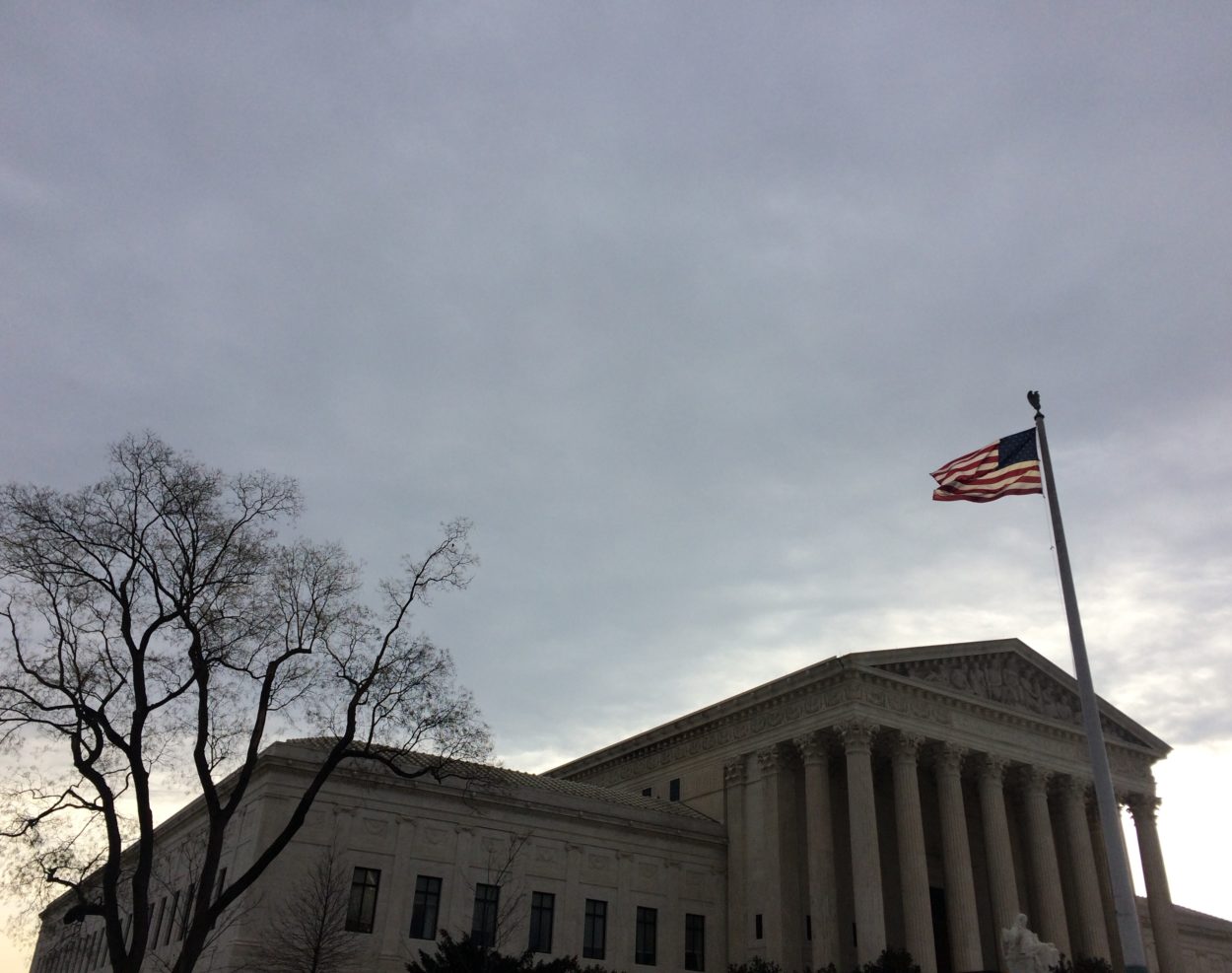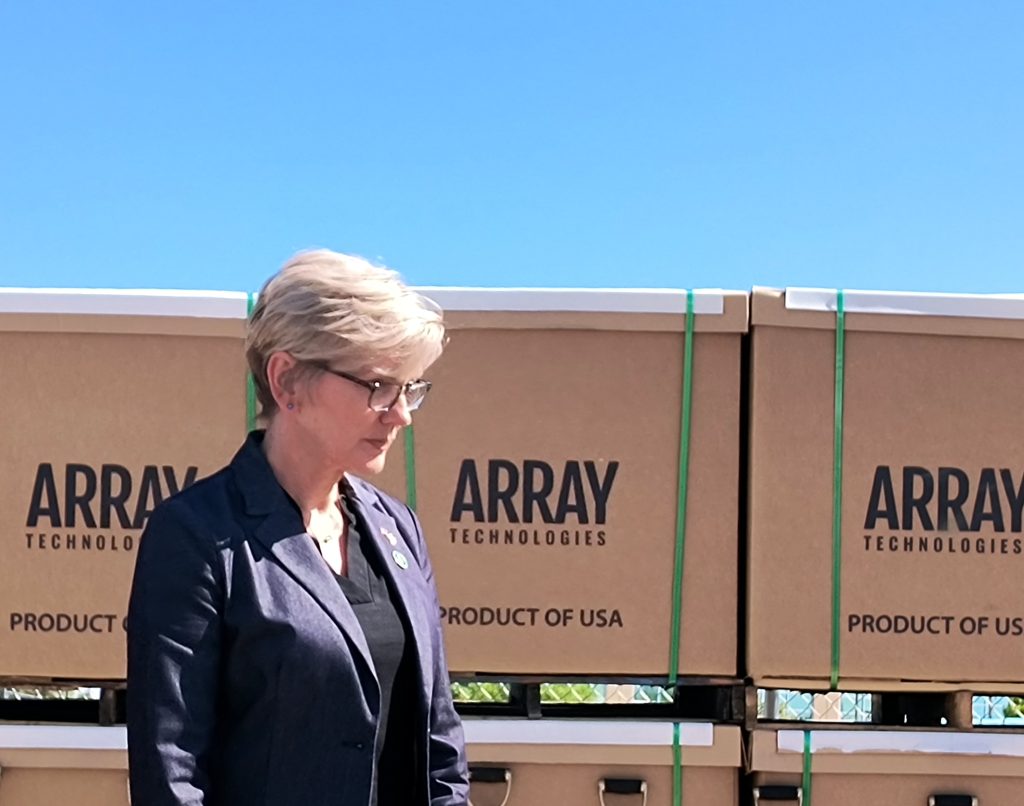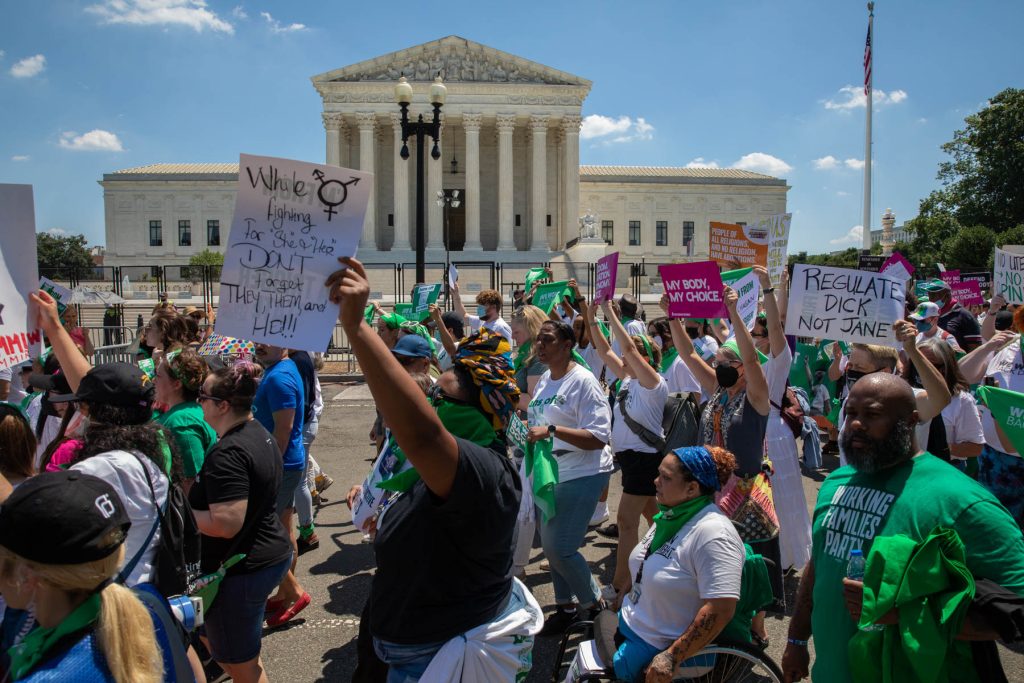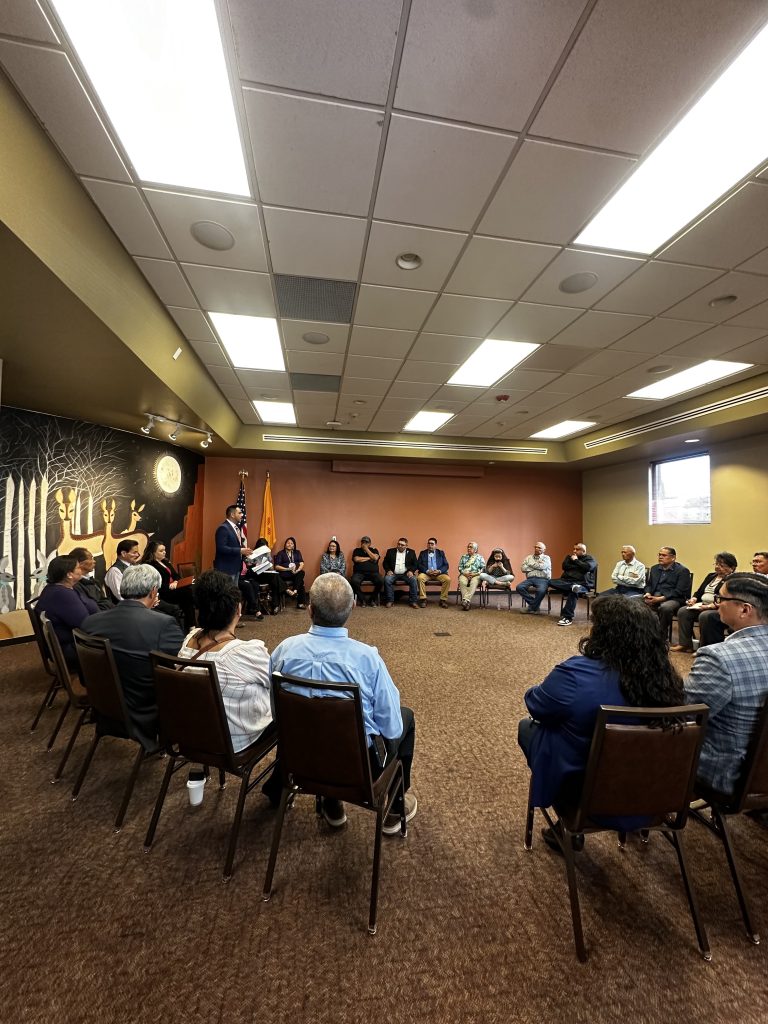U.S. Senate Republicans on the Senate Judiciary Committee voted unanimously Thursday to move the nomination of Judge Amy Coney Barrett to the U.S. Supreme Court to the full Senate.
Democrats on the committee boycotted the vote and left posters of people who might be affected by the loss of the Affordable Care Act in their seats. One of the first cases Barrett will likely hear as a newly sitting U.S. Supreme Court justice will be a challenge to the ACA.
Related: New SCOTUS conservative bloc could overturn ACA, with big impacts on NM
The Senate will vote on Barrett’s confirmation Monday. Senate Republicans need only a slim majority to confirm her. If confirmed, Barrett will replace Justice Ruth Bader Ginsburg, who died Sept. 18.
Adriann Barboa, New Mexico policy director for the nonprofit organization Forward Together, said that Barrett is the most extreme anti-reproductive rights judge nominated for a Supreme Court justice seat since the Senate rejected Judge Robert Bork more than 30 years ago.
Barboa said Barrett’s confirmation will negatively affect reproductive rights, immigrant families and LGBTQ rights “for generations to come.”
Forward Together has been working to try to pass a Medicaid buy-in program in the last two legislative sessions. The program would allow residents who do not qualify for Medicaid to receive coverage. This would enable approximately 180,000 New Mexico residents who are uninsured to be eligible for health insurance.
“The buy-in program makes the Medicaid program, which is a trusted and reliable full service program, accessible to more folks who don’t qualify for Medicaid but could buy in,” Barboa said.
But, if the high court overturns the ACA, Medicaid expansion could be rolled back.
Barboa said that with the ACA in danger of being overturned, “we would risk going back to 20 percent of the population being uninsured.”
Barboa said she fears that with Barrett on the high court, Roe v. Wade could also be overturned.
“Her record from the U.S. Court of Appeals Seventh Circuit shows she is an ardent opponent to reproductive justice, specifically to safe and legal access to abortion. It would be a change in direction for at least a generation if not more,” Barboa said.
Another fear is that the court could “chip away,” at Roe v. Wade without overturning it completely. Because some states have only one abortion clinic serving the entire state and also must contend with other legal hurdles before getting an abortion, for many, Roe v. Wade is in effect “on paper,” more than in reality, according to some reproductive rights advocates.
Although New Mexico has a handful of abortion clinics, mostly located in Albuquerque, for rural women, access to abortion care is a significant hurdle.
“Eighty percent of our state does not have an abortion clinic within an hour’s drive,” Barboa said.
She said that the direction the Supreme Court appears to be headed in with the likely confirmation of Barrett on Monday is out of step with the majority of New Mexico residents.
According to a poll conducted by Forward Together in 2017, 77 percent of rural New Mexicans said they could hold their own moral views on abortion and trust a woman and her family to make this decision for themselves. The poll was conducted through mixed mode (landline, web and cell phone) and over 1,700 resident adults living in rural counties were contacted. The poll has a 3 percent margin of error overall.
“Whether to decide to have an abortion or not is a personal decision not meant for a judge or elected official to decide for women or their families,” Barboa said.
Updated with margin of error information.





















